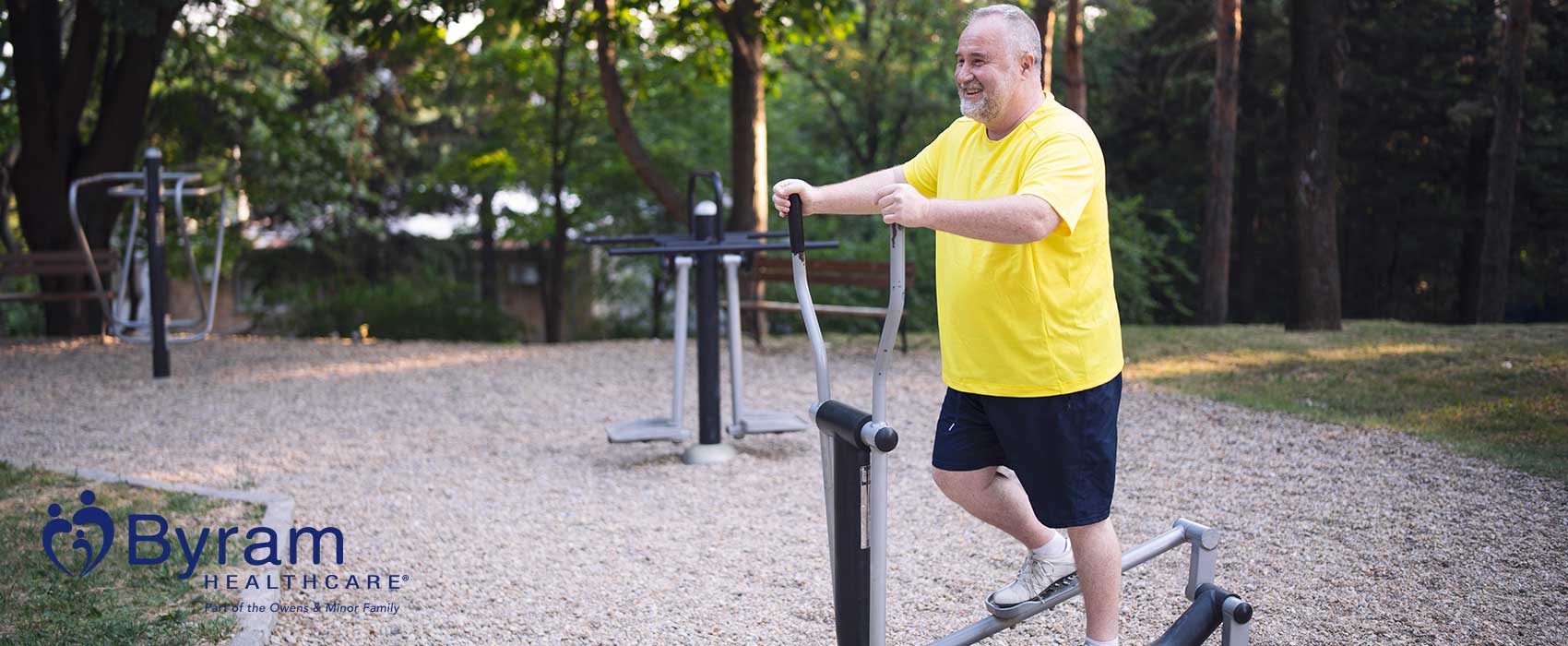
New Year’s resolutions are the perfect way to start the year off on the right foot, yet most people abandon their goals within the first few months. Weight loss resolutions are one of the most popular goals, but even when you have the strongest intentions, a fool proof plan, and endless motivation, it can be hard to transform behaviors into life-long habits. Losing weight is difficult, but it’s extremely rewarding, especially if you’re currently living with diabetes or prediabetes. Not only will you feel more confident, but weight loss helps stabilize blood glucose levels, improve mental health, boost energy levels, and reduces your reliance on insulin. When you’re looking for better techniques to improve your diabetes management, consider these seven ways to lose weight and stick to your New Year’s resolution once and for all.
7 Ways to Commit to Your New Year’s Resolution
Creating New Year’s resolutions can be a motivating way to lose weight and make diabetes management easier. However, close to half of the people who make a resolution give up by February. If you want to reach your goals and make healthy changes in the New Year, here are seven ways to help you stay committed.
1. Give Yourself a Break
One of the biggest things that causes people to abandon their New Year’s resolution is over committing. When January 1st comes, you might have an intricate list of new habits, eating patterns, and activities that you want to begin. While you’ll likely stick to these for a few days, too many changes at once will inevitably lead to failure. Creating new habits can be hard, which is why experts recommend only introducing one at a time. This allows your body to adjust to the habit as your brain makes new neural connections so that eventually, it becomes second nature. Don’t expect this to happen overnight. It will take a lot of trial and error and if you have an off day, don’t be too hard on yourself.
Healthy eating is a lifestyle, and it takes time to make the transition. Avoid eating in front of the TV or while you’re on your phone so you’re more conscious of your hunger cues. Similarly, don’t feel like you need to finish an entire meal if you begin to feel full. Savor your food and try to listen to your body.
2. Eat a Low-Carb Diet
Low-carb diets are great options for people living with diabetes, as they limit the amount of insulin your body needs. Since carbohydrates raise blood glucose levels more than other foods, a low-carb diet can help counteract certain effects of diabetes, especially in regard to weight gain. A diet low in carbs helps individuals with type 2 diabetes naturally regulate their blood glucose levels and lowers the amount of insulin people with type 1 diabetes need to administer throughout the day. However, carbs are still considered an essential nutrient and are needed for healthy bodily functions. For the biggest impact on your weight loss goals, aim to eat more complex carbs and try to cut out processed, simple carbs like white bread, refined sugar, dairy, soft drinks, and certain fruits.Simple carbs are broken down quickly and cause spikes in blood sugar levels. Complex carbohydrates take longer to digest, therefore have less of an immediate impact on your blood sugar. Instead, your blood glucose levels rise slowly and are more efficiently stabilized without the need for increased insulin. This gives your body longer, more sustainable energy and keeps you feeling full and satisfied. Some great examples of complex carbs to help aid in weight loss include whole grains like oatmeal, quinoa, potatoes, non-starchy vegetables, and beans and legum
3. Aim for Nutrition
Focusing on nutrition is a great way to help fuel your body and lose weight without excessive measures or dangerous, fad diets. Replace processed snacks with whole veggies, diabetes-friendly fruits, nuts, and lean protein. By avoiding ultra-processed foods, you’ll help manage your diabetes and shed unwanted pounds. To increase the likelihood that you’ll reach for a healthy snack, take some time to prep veggies and fruits at the beginning of the week. Instead of a bag of chips, snack on some carrots with a serving of hummus or cucumber slices with salsa. If you’re craving something sweet, have a handful of berries or a banana with peanut butter.
Focus on the quality of the calories you consume, not just the calories themselves and you’ll be more likely to lose weight. This is especially important in regard to products labeled as “low fat” as they tend to add sugar to make up for the difference in taste. Fat isn’t your enemy when trying to lose weight—sugar is. Experiment in the kitchen to find a healthy recipe you love and increase your chances of sticking to your New Year’s resolution.
4. Prioritize Your Sleep
One of the best ways to make sure that you’re losing weight is to prioritize your sleep schedule. When you’re sleep deprived, your body produces higher levels of cortisol. Heightened levels of cortisol send signals to your body that it needs to store fat and therefore, energy is drawn out of soft tissue or muscle. This can cause fat gain and muscle loss, even in individuals who are eating healthy and working out.
Sleep deprivation also decreases will power, making you more likely to give in to unhealthy comfort foods or sugary snacks. Aim to get about seven and a half to nine hours of sleep each night for the best impact on your overall health.
5. Meal Plan and Prep
Eating healthy requires some effort, especially when you work full-time. Don’t let work ruin your weight loss goals. Be prepared for the week by meal planning and prepping what you can. There are thousands of recipes that fit within healthy diabetes meal planning without added sugar, salt, unhealthy fats, and processed ingredients. You can pre-cut veggies for dinners, portion out protein, and pre-mix spices or sauce so when you get home from work, you don’t have to spend hours in the kitchen.
Making your own lunch to take to work is another great option to help you lose weight and stick to your resolution. This reduces your chance of grabbing something fast and unhealthy when you’re busy or on a time crunch. Eat a well-balanced breakfast before you leave, bring a few healthy snacks, and try to avoid temptation at the office. If you don’t have time to make your lunch, look for options with plenty of fresh vegetables and opt for oil and vinegar when dressing your salad.
6. Start Small
Choose one habit to focus on and only add a new one once you’ve mastered the old. If you have a bad day and stray off your meal plan, don’t worry. As long as you don’t resort to old habits, one unhealthy day isn’t going to derail your weight loss efforts. Resolutions aren’t meant to be all-or-nothing. It takes work, especially when the weather is dreadful, the holidays are over, and sunlight is scarce. Start by making small changes that will help you lose weight. Cook meals at home instead of ordering take out, swap out sweets with natural fruits, go on a walk after dinner, or find a way to help manage your stress. If you’re not used to exercising regularly, try committing to a few classes a week or doing online, instructor led programs. Small changes make a big impact, especially over the course of a year.
7. Manage Your Stress
Your mental health should continue to be a priority while working on your New Year’s resolutions. Stress can be extremely counterproductive to weight loss and diabetes management. Losing weight doesn’t happen overnight, so be kind to yourself. Do what you can to manage your stress levels and if you experience any signs of diabetes distress, seek professional help.
Before adopting a new eating plan or exercise regimen, always talk to your doctor. While it’s important to make healthy changes when you’re trying to lose weight, managing your diabetes is always the most important task at hand. Continue to regularly check your blood glucose levels and discuss any concerns with your doctor.
To do everything you can to manage your diabetes effectively and reduce your risks of serious complications, Byram Healthcare has a range of continuous blood glucose monitors. We also offer diabetes support and educational materials to give you everything you need for comprehensive care.




